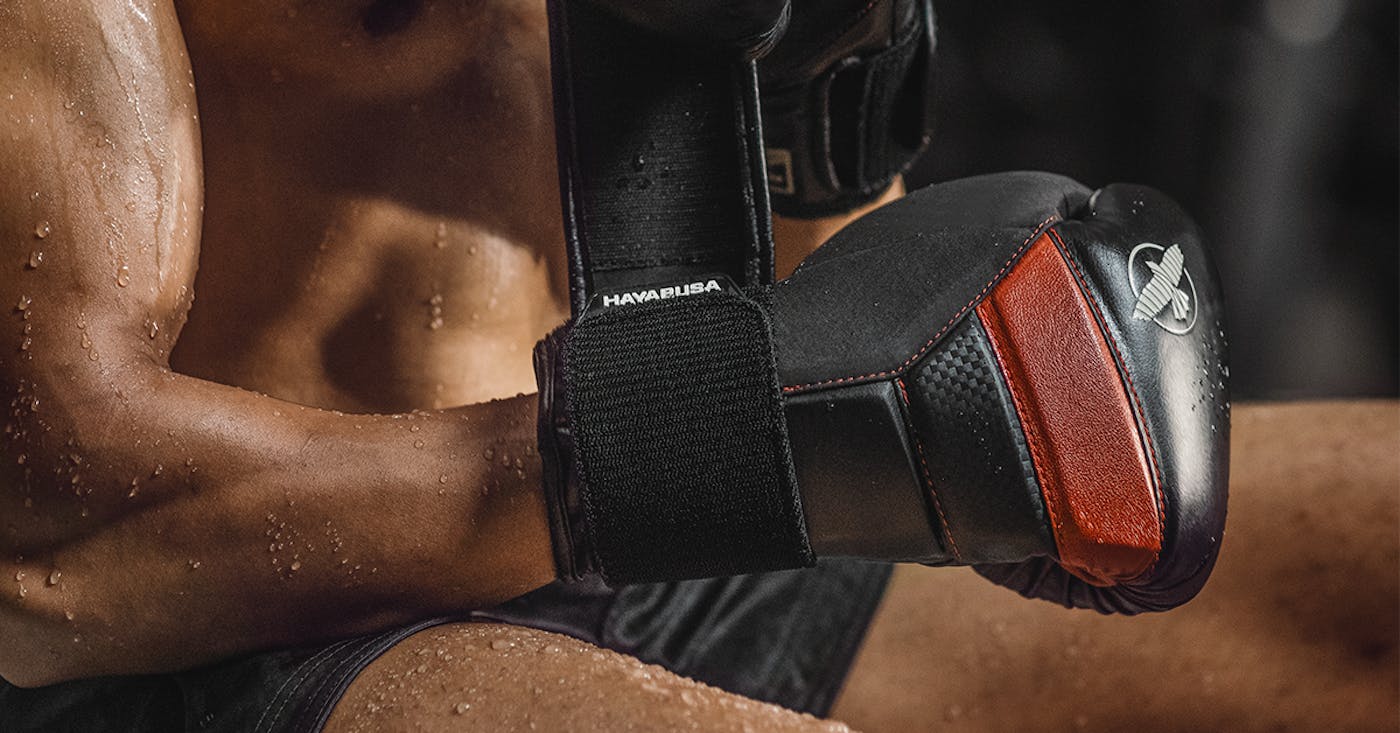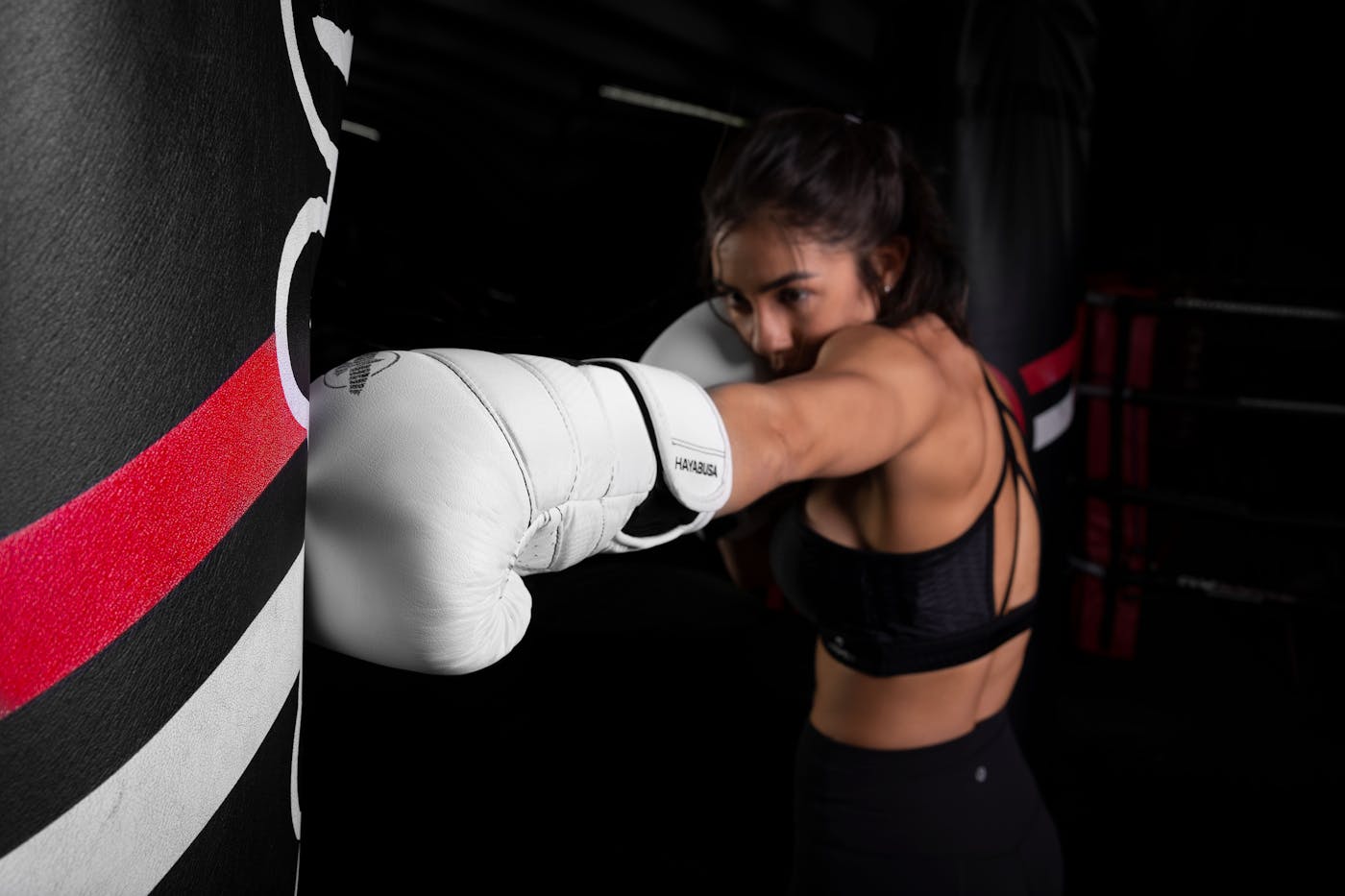Finding the right training equipment is crucial, especially when it comes to boxing gloves, regardless of your experience level. Poorly fitting boxing gloves can throw off your form and possibly lead to injury. In this guide, we'll take you through everything you need to know to choose the best boxing glove weight and size for your training needs.
Why the Right Fit Matters
The right boxing gloves should offer a snug fit—tight enough to protect your hands but not so tight that they restrict movement. The gloves should be large enough to cover your hands fully but not so bulky that they weigh you down. Let’s dive into how to determine the best size and weight for your boxing gloves.
How to Choose the Right Size Boxing Gloves
Boxing gloves come in various sizes, typically ranging from small to extra-large. The right size depends on the circumference of your hand, measured around the knuckles. Here’s a simple guideline:
- Small Gloves (6 to 7.5 inches): Ideal for people with smaller hands.
- Medium Gloves (7.5 to 8.5 inches): Suitable for most average-sized hands.
- Large Gloves (8.5 to 9.5 inches): For those with larger hands.
- Extra-Large Gloves (9.5 inches and above): For the biggest hand sizes.
How to Measure Your Hand Size:
- Use a flexible tape measure.
- Wrap the tape around your hand at the knuckles.
- Note the circumference and use the guide above to find your size.
Pro Tip: Always try on gloves with hand wraps to ensure a proper fit.

How Heavy Are Boxing Gloves?
Boxing gloves typically range in weight from 10 oz. to 18 oz. The weight you choose will depend on the type of training you’re doing:
- 10-12 oz. Gloves: Best for bag work, mitts, and pad training. These gloves are lighter and allow for quick, precise movements.
- 14-16 oz. Gloves: Ideal for sparring. These gloves offer more padding to protect both you and your sparring partner.
- 16-18 oz. Gloves: Often used by heavier fighters or for those seeking additional protection during intense sparring sessions.
Tip: The more padding a glove has, the heavier it will be, which is crucial for absorbing force and protecting your knuckles.
How to Choose the Right Ounce for Boxing Gloves
Choosing the right weight for your boxing gloves depends on your body weight, hand size, and the type of training you’ll be doing. Here’s a quick guide:
- < 126 lbs.: 12-14 oz. gloves
- 127-160 lbs.: 14-16 oz. gloves
- 161-180 lbs.: 16-18 oz. gloves
- 181 lbs. and over: 18 oz. gloves
Important Consideration: When training for competitions, each weight division has specific glove weight requirements. Always check the regulations of the competition you’re training for.
Types of Boxing Gloves
There are different types of boxing gloves designed for various training purposes. Here’s a breakdown:
Bag Gloves
Bag gloves are designed for heavy bag, mitt, and pad work. They typically have less padding than sparring gloves, offering less shock absorption but providing better hand speed and precision.
- Ideal For: Regular training sessions focusing on power and accuracy.
- Key Features: Adjustable wrist support, durable material, lighter weight.
Sparring Gloves
Sparring gloves are heavier and offer more padding to soften the impact of punches. They are designed to protect both the wearer and their sparring partner during training.
- Ideal For: Sparring sessions where protection is paramount.
- Key Features: Extra padding, secure fit, heavier weight.

Training Gloves
Training gloves are a hybrid between bag gloves and sparring gloves. They are versatile and can be used for both bag work and sparring, making them a good all-around option for fighters.
- Ideal For: Fighters who need a single pair of gloves for multiple training activities.
- Key Features: Versatility, balanced padding, durable construction.
Competition Boxing Gloves
Competition gloves are typically lighter and vary by weight class and organization rules. They are designed to maximize the speed and power of your punches.
- Ideal For: Competitive bouts.
- Key Features: Lightweight, regulated by competition rules, optimized for performance.
Does a Heavier Glove Hit Harder?
The impact of a punch is determined by the fighter’s technique and power, but heavier gloves can add more force behind a punch. However, don’t rely solely on glove weight—accuracy, speed, and consistency are just as important.
Boxing Gloves with Laces or Velcro?
Once you’ve decided on glove weight, the next question is: laces or Velcro?
- Laces: Offer better wrist support and a more customized fit but require assistance to tie.
- Velcro: Easier to put on and take off by yourself, offering sufficient wrist support and convenience.
Recommendation: Choose laces for intense training sessions where wrist support is critical. Opt for Velcro when you need quick adjustments.
Leather or Vinyl Boxing Gloves?
The material of your boxing gloves can affect their durability and comfort.
- Leather Gloves: More durable and comfortable, making them a smart investment for serious fighters.
- Vinyl Gloves: Less expensive but generally not as durable as leather.
Our Choice: At Hayabusa, we use Vylar® Engineered Leather in our T3 Boxing Gloves and top-grain cowhide leather in our Pro Boxing Gloves, ensuring a balance of durability and comfort.
Conclusion: Invest in the Best
Choosing the best boxing gloves for your needs is about more than just picking a weight or size. Consider how you’ll use them, the type of training you’ll be doing, and the quality of the materials. At Hayabusa, we offer a range of high-quality boxing gloves designed to meet the needs of every fighter.
FAQs
Q: What size boxing gloves should I use for sparring?
A: For sparring, most fighters prefer 16-18 oz. gloves to ensure maximum protection.
Q: Can I use the same gloves for bag work and sparring?
A: While you can, it’s recommended to have separate gloves for each to prolong their lifespan and ensure optimal protection.
Q: How often should I replace my boxing gloves?
A: Replace your gloves every 6-12 months or sooner if you notice wear and tear, especially if you train regularly.
By following these guidelines, you’ll be well-equipped to choose the right boxing gloves that match your training needs and preferences.




